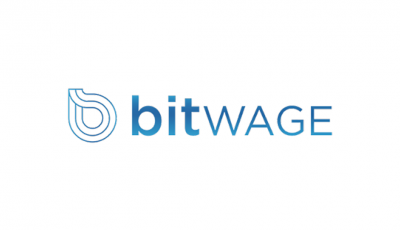Disruption in Motion: Bitwage.co and the Utility of Bitcoin Payroll
 Everyone is always discussing exactly how disruptive Bitcoin is as a technology, so I figured, hey, why not discuss exactly what it’s doing? I wanted to focus specifically on an area where the technology is:
Everyone is always discussing exactly how disruptive Bitcoin is as a technology, so I figured, hey, why not discuss exactly what it’s doing? I wanted to focus specifically on an area where the technology is:
– Already deployed
– Highly disruptive to existing businesses
– Creates more than incremental improvements (if not today, then theoretically)
– Isn’t being discussed as commonly within the media as some of the options (i.e. OpenBazaar vs. eBay, Coinbase vs. PayPal)
I quickly settled on one area in particular: payroll services. The payroll industry is not some gargantuan behemoth, but it is also not exactly tiny – yearly revenues for the industry are estimated around $40BN. Payroll processing services play a large and yet unseen part in the lives of many people, ensuring direct deposits are processed on time, simplifying tax withholding for employers, and simplifying end-of-year tax returns for them as well.
What’s most interesting about Bitcoin-based payroll services, though, is my fourth criteria: lack of coverage. No one is talking about this, and yet it could create a fairly large shift within this sector within a very short-term period.
As a result of this disruptive possibility, we’re taking a look today at a particular company within the space: Bitwage.co.
I’ve had personal experience with Bitwage.co – through CoinReport, as it happens; my articles are paid for by CoinReport directly in Bitcoin. How does Bitwage.co work? It’s quite simple: the employer sends a request for payroll to Bitwage.co along with either a wire transfer, a debit/credit payment, or a Bitcoin payment. Bitwage.co fulfills the payroll request after the funds have cleared – a few days for wires or debit/credit, a few confirmations for Bitcoin.
Check mark for #1: already deployed and functional. Bitwage is still in alpha mode, and the website is perhaps not as beautiful and perfect as it could be, but it certainly works. I’m pretty sure my bitchecks showed up, and honestly, that’s enough for me.
#2, highly disruptive to existing businesses. Check mark. Bitwage.co can do everything MUCH more efficiently than a traditional company could, thanks to Bitcoin. Bitcoin is finance that can be automated effectively, and that has far less in fees. You can even imagine the following:
Employee A wants to be paid in BTC. Employee B wants to be paid in USD. Their employer sends Bitwage a payroll request to pay both employees out in BTC. The employer sends BTC over directly to Bitwage. Thanks to the cost savings Bitwage offers on the employers payroll service, the employer is even able to give their employees a tiny bonus on their pay – around 1%, say. It may come as a surprise to you that payroll services are actually relatively expensive, generally speaking – a lot of checks being mailed, direct deposits being processed, records being created, and so on. Wouldn’t it be nice if there were a decentralized autonomous ledger to do all that for us? I kid, I kid; what kind of crazy invention would that be, after all?
Employee A’s Bitcoin address in Bitwage’s system (which they can change at any time!) is their personal, well-secured wallet.
Employee B’s Bitcoin address is their Coinbase account wallet, set up to automatically sell any Bitcoin received.
Employee B gets their USD at the market rate, minus 1%. Luckily, their employer has picked this 1% up for them, so they end up getting as much as they would get with a traditional payroll service. Employers have to pass costs on – whether it’s to employees or customers – so saving them money is good for everyone in the long run.
Employee A gets a much better deal (beyond the obvious benefit of receiving Bitcoin instead of dollars), as they end up with a free 1% thanks to their employer’s grace and good decision-making.
Best of all: the employer is saving time, money, and future-time. Despite all the discussion of how endlessly complex Bitcoin taxes are… they’re not actually that complex, and Bitwage makes it simple to figure out your inflow -> outflow.
#3: more than incremental improvements, at least theoretically.
Check mark. As is, yes, it’s an incremental improvement. But it can be taken much farther – and I hope Bitwage will take it much farther.
Why do we get paid every two weeks? Payroll services is expensive. But it costs Bitwage fractionally more to fulfill more often than that. In theory, an employer could pre-load two weeks’ worth of pay for their employees, and then Bitwage could pay out daily. This might seem insignificant, but for the poorest people out there who work 60 hours a week to make ends meet, and are constantly living paycheck to paycheck just to feed themselves, this could be a DRAMATIC increase in quality of living. Payday loans could cease to exist – a blessing for us all, as predatory lenders like them hurt the overall economy.
There’s plenty more that could be done with this system as well – automation is the future of everything, and Bitwage is helping people step into better payroll automation.
Lastly, a quick note on company responsiveness. I sent Bitwage a ticket to inquire about a particular feature of the website that I found disconcerting. The site displayed the BTC/USD price at the time the employer requested payroll, and then updated it to the “new” BTC/USD price when the payroll request was fulfilled by Bitwage. I sent in a query about this, and asked why it was done that way. 20 minutes after my ticket, the CEO John Lindsay sent me an email discussing it and agreeing with my criticism. I replied to give my thoughts on how best to improve it; I suggested changing the original BTC/USD price at time of request to say something like “Unfulfilled” or “N/A.” An hour later, John emailed me back – I opened it expecting a dismissal or an “I’ll think about it”-type reply. What I got instead shocked me – he had updated the site to do exactly what I’d suggested, PLUS more, perfectly resolving my criticism and both improving his service and greatly increasing my confidence in it. It’s little moments like that that build great businesses. Best of luck to John Lindsay and the team at Bitwage – I hope to see your disruption continue.











